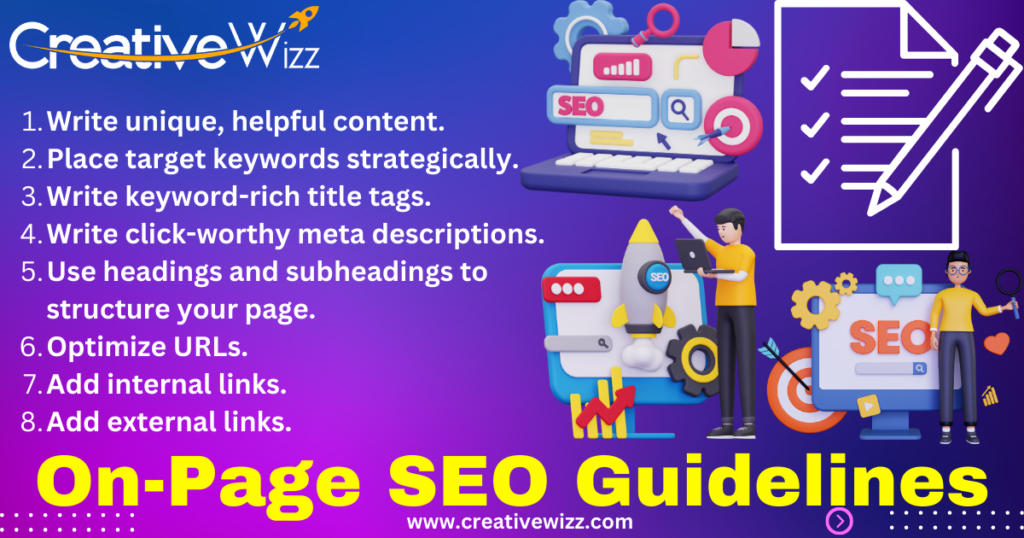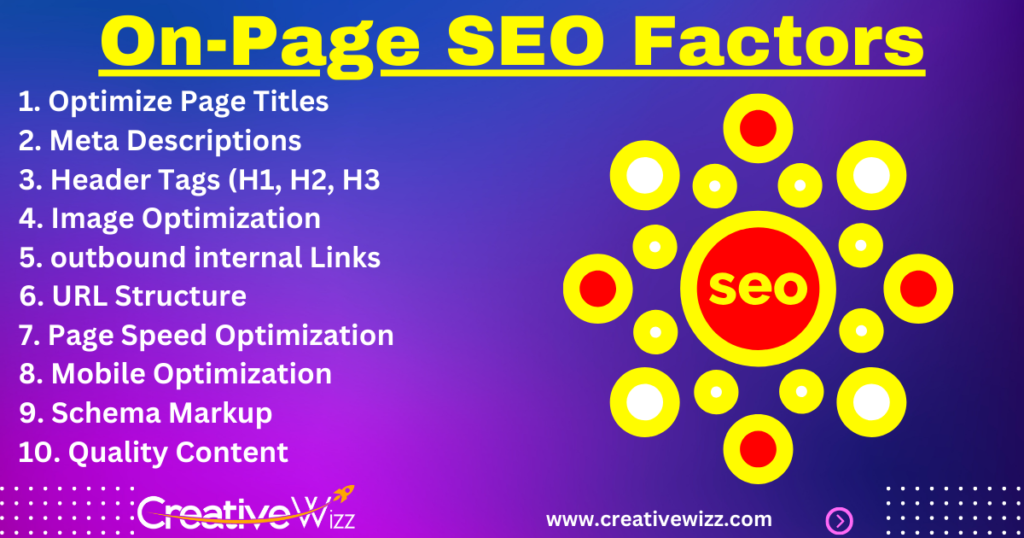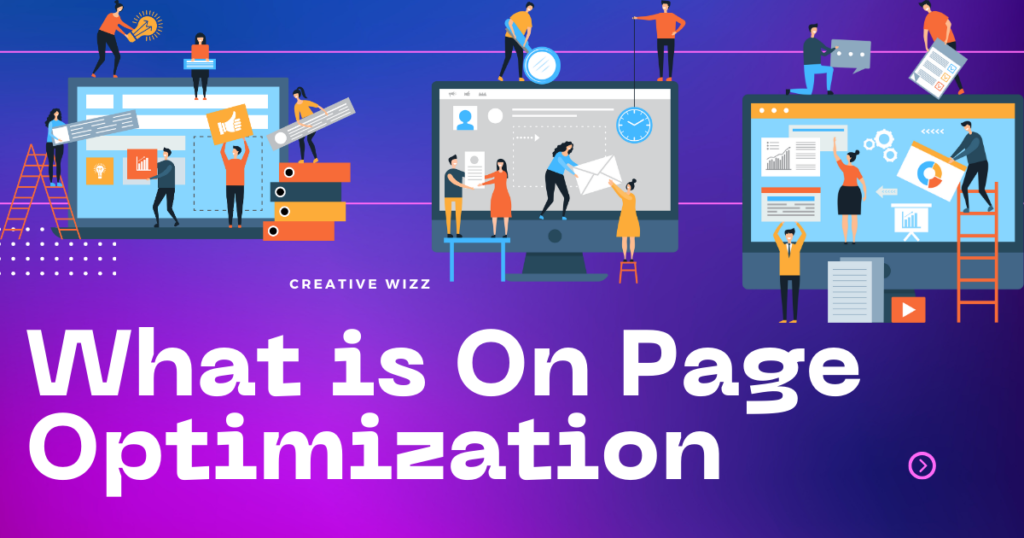Demystify Ecommerce Sales: Your Guide to Powerful SEO Strategies
In the bustling world of online commerce, Ecommerce SEO emerges as a critical strategy for businesses aiming to thrive in the digital marketplace. Whether you’re a seasoned e-retailer or just dipping your toes into the online sales pool, understanding Ecommerce SEO is essential. In this comprehensive guide, we’ll unravel the intricacies of Ecommerce SEO, explore its significance, and equip you with actionable strategies to boost your online store’s visibility.
Ecommerce SEO is crucial for driving qualified traffic to online stores and maximizing Revenue. With over $4 trillion in ecommerce sales globally, the competition for rankings is fierce. Proper SEO optimization provides a competitive advantage to rank highly and get your products found.
This comprehensive guide will cover everything you need about e-commerce SEO, including best practices, challenges, keyword research, technical optimization, tracking success, and more. Let’s learn how to increase organic visibility for your online store.
Conquer online competition and skyrocket sales with effective Ecommerce SEO! This guide unveils the secrets to optimizing your online store for search engines, attracting targeted traffic, and boosting conversions. Learn essential strategies, from keyword research to technical optimization, and watch your brand flourish in the digital marketplace!
Demystifying Ecommerce SEO
What Is Ecommerce SEO?
Ecommerce SEO (Search Engine Optimization) is a set of optimization techniques to improve your online store’s visibility in search engine results. The ultimate goal? To rank higher organically, attract more targeted traffic, and convert those visitors into loyal customers.
Why Does Ecommerce SEO Matter?
Now that we’ve defined Ecommerce SEO, let’s delve into why it matters:
1. Discoverability and Brand Exposure:
- Ecommerce SEO helps potential customers discover your Brand. When someone searches for relevant products, your optimized pages appear in their search results.
- Increased visibility means more eyes on your Brand, leading to brand recognition and trust.
2. Product Visibility and Sales:
- People actively search for products online. By investing in Ecommerce SEO, you enhance product visibility.
- When your products rank higher, more potential buyers find them, explore your offerings, and make a purchase.
3. User Experience Enhancement:
- SEO optimization involves improving your website’s structure, content, and user interface.
- A well-optimized site provides a seamless experience, promoting positive brand association and increased sales.
4. Long-Term Growth and Sustainability:
- Ecommerce SEO isn’t a quick fix; it’s a long-term investment.
- You build a solid foundation for sustained growth and competitiveness by consistently optimizing your store.
12 Ecommerce SEO Strategies for Your Online Store
What is Ecommerce SEO Strategy
Now that we’ve covered the basics, let’s dive into actionable strategies to boost your online store’s SEO:
1. Keyword Research:
- Identify relevant keywords that potential customers use when searching for products.
- Optimize your product pages with these keywords to improve their chances of ranking.
2. Optimize Product Descriptions and Titles:
- Craft compelling, unique product descriptions.
- Use descriptive titles that include relevant keywords.
3. User-Friendly URLs:
- Create clean, descriptive URLs for your product pages.
- Avoid long strings of random characters.
4. High-Quality Product Images:
- Optimize images for faster loading times.
- Use descriptive alt tags for accessibility and SEO.
5. Mobile Optimization:
- Ensure your online store is mobile-friendly.
- Google prioritizes mobile-friendly sites in search results.
6. Internal Linking:
- Link-related product pages within your site.
- Enhance navigation and distribute link authority.
7. User Reviews and Ratings:
- Encourage customers to leave reviews.
- Positive reviews boost credibility and improve rankings.
8. Schema Markup:
- Implement structured data markup to enhance search results.
- Rich snippets provide additional information about your products.
9. Site Speed Optimization:
- Fast-loading pages improve user experience and SEO.
- Compress images, minimize code, and leverage browser caching.
10. Secure Your Site (HTTPS):
- Google favours secure sites.
- Install an SSL certificate to ensure data encryption.
11. Local SEO for Physical Stores:
- If you have physical stores, optimize for local searches.
- Include location-specific keywords and create Google My Business listings.
12. Monitor and Adapt:
- Regularly analyze your site’s performance using tools like Google Analytics.
- Adjust your strategies based on data insights.
How Does Ecommerce SEO Work?
Ecommerce SEO works by optimizing your online store for relevant product and service keywords that users search for. The goal is to rank highly in search engines like Google, so you appear prominently for searches related to your offerings.
For example, an outdoor equipment ecommerce site would target keywords like:
- hiking backpack
- lightweight tents
- down sleeping bags
- trekking poles
By ranking well for these commercial product keywords, the site drives highly targeted traffic to its product pages and category archives.
Ecommerce SEO also involves optimizing for broader non-product keywords like “outdoor gear” to capture traffic earlier in the buyer’s journey before they have a specific product in mind.
Overall, ecommerce SEO aims to:
- Increase organic traffic to product pages and category/brand archives
- Build authority around your Brand and offerings
- Provide a better search experience with rich product data
- Ultimately, drive more conversions and Revenue
The specific tactics vary based on your ecommerce platform, but the end goal is to earn more visibility and sales through search engines.
Why Is SEO Important for Ecommerce Sites?
SEO delivers several significant benefits that make it a must-have for any ecommerce site:
1. Increased Site Traffic
Ranking well drives targeted organic traffic interested in your products and services. SEO can be a primary driver of new visitors to your online store.
2. Higher Conversions
SEO visitors already have buying intent and are looking for what you sell, which converts better than other acquisition channels.
3. Improved Branding & Awareness
Ranking for your brand name and products increases discovery and reinforces your authority.
4. Better User Experience
SEO helps create a findable ecommerce site with excellent on-site experience to convert visitors.
5. Cost Effective
SEO provides a strong ROI without ongoing paid advertising costs like PPC. The investment pays off long-term.
6. Competitive Differentiation
Outranking other sites for your keywords gives you an advantage in crowded ecommerce verticals.
SEO should be a core piece of any ecommerce marketing strategy. The incremental value of more qualified organic traffic, sales, and brand equity is substantial.
Why Ecommerce Sites Care About SEO
Here are 5 key reasons ecommerce sites, big and small, invest in SEO:
1. Lead Generation – SEO brings in motivated prospective customers actively looking to purchase your niche.
2. Brand Building – Ranking for your brand name increases awareness and trust in your business.
3. Cost Savings – Free organic traffic reduces paid acquisition costs and provides better ROI.
4. Competitive Edge – Strong SEO helps you stand out from competitors, aiming for the exact keywords.
5. Long-Term Assets – SEO provides lasting value by driving recurring organic traffic that compounds over time.
Once foundational work is complete, SEO delivers significant upside for e-commerce sites with relatively low ongoing costs. That makes it a worthwhile investment compared to other marketing channels.
Challenges of Ecommerce SEO
While critical, ecommerce SEO also comes with some inherent challenges:
🔹 Fierce competition – Popular product keywords are ultra-competitive between all the sites trying to rank.
🔹 Constant new products – Adding new inventory constantly requires updated optimization.
🔹 Thin content – Product pages tend to have thinner content than blog articles.
🔹 Technical constraints – Ecommerce platforms impose limits on customization flexibility.
🔹 Rating volatility – Shoppers quickly change product reviews, creating fluctuations.
🔹 Lower dwell time – Product pages naturally have on-site durations shorter than blogs.
Despite these challenges, proper optimization tailored to your e-commerce site can overcome them and achieve success. Having realistic expectations around the level of competition is also essential.
Ecommerce SEO Best Practices
Here are 12 critical best practices to follow for optimal ecommerce SEO:
1. Choose the Right Ecommerce Platform
Consider SEO strengths and limitations when selecting your ecommerce platform. Shopify and BigCommerce offer the best SEO capabilities out of the box.
2. Build Authority Content
Create a blog, guide, and other content to build authority around your Brand, products and expertise—link internally to product pages.
3. Optimize Page Speed
Ecommerce sites tend to have more page weight. Follow speed best practices, enable compression, reduce redirects, and leverage browser caching.
4. Improve Mobile Optimization
Over half of the shopping traffic is on mobile. Ensure a seamless mobile experience with a responsive design and fast mobile page speeds.
5. Enhance Site Architecture
Use organized category structures, descriptive URLs, effective internal linking and clear site architecture.
6. Implement Schema.org for Products
Use appropriate schema.org markup like Product, Offer, Review, BreadcrumbList, etc. Makes product data search-friendly.
7. Optimize Product Title Tags & Meta Descriptions
Include primary keywords naturally and compellingly. Keep title tags under 60 characters and meta descriptions under 160 characters.
8. Enhance Product Content
Write robust, unique product descriptions optimized with keywords. Add supplementary content like buyer’s guides.
9. Collect Customer Reviews
Product reviews boost conversions and improve rankings when structured data is implemented.
10. Link Internally Between Related Products
Cross-link related products together using anchor text keywords where appropriate. Creates more entry points.
11. Produce Fresh Content Regularly
Add blog articles, guides, videos, and other new content to give search engines new pages. Integrate internal links to products.
12. Implement Tracking to Measure Results
Use analytics to monitor organic traffic to gauge rankings—track goal completions for conversion performance.
Following these core best practices provides the baseline for any successful ecommerce SEO strategy. Optimize these foundational elements before tackling more advanced tactics.
How to Create an Ecommerce SEO Strategy
Creating an effective SEO strategy tailored to your ecommerce site involves several key steps:
1. Set Goals
Define specific organic traffic, ranking, and conversion goals so you can adequately measure success.
2. Research Target Keywords
Identify the main product, service and Brand keywords with search volume aligned with your offerings.
3. Perform Technical SEO Audit
Review site health to catch any crawling, indexing, speed or security issues impacting performance.
4. Optimize On-Page Elements
Update page titles, metadata, content, schema markup and architecture for priority pages.
5. Build Backlinks
Earn high-quality external links to boost perceived trust and authority to rank better.
6. Create Fresh Content
Add blog posts, guides, videos, and other content to increase search traffic and links internally.
7. Track Performance
Monitor organic traffic, rankings, and conversions in analytics to guide strategy.
8. Refine & Expand Keywords
Review search volume trends and add rising keywords over time.
A documented strategy with specific objectives keeps your ecommerce SEO program on track for maximum impact.
Ecommerce Keyword Research
Thorough keyword research is the starting point for any ecommerce SEO strategy. The terms you target dictate the optimization approach and content required.
Follow these steps to research and select the best ecommerce keywords:
🔎 Brainstorm primary terms – List any product, brand and category terms directly relevant to your business.
🔎 Leverage keyword tools – Input seed keywords into tools like Google Keyword Planner to expand into more related keywords with search volume data.
🔎 Group keywords into topics – Organize keywords into groups around specific products, categories and subcategories.
🔎 Analyze competition – Review how competitive each keyword is and whether you can realistically rank. Tools like SEMrush help here.
🔎 Prioritize target keywords – Build lists of core focus, secondary, and aspirational keywords divided by priority.
Ongoing keyword research allows you to adjust and add emerging keywords over time. Regularly monitor search volume trends.
Site Architecture for Ecommerce SEO
Clear, well-organized site architecture is essential for e-commerce SEO. Here are key elements to optimize:
Descriptive URL Structures
Use descriptive URL paths built around product categories and subcategories. For example:
Avoid overly complex URL structures. Define a consistent URL pattern.
Effective Internal Linking
Link between related products and categories to establish site relationships. Use anchor text keywords where appropriate.
Logical Category Hierarchy
Organize products under nested subcategory pages from broad to more specific. It makes it easy to navigate.
Strong Homepage to Category Pages
The homepage should link prominently to primary category and product pages to facilitate discovery.
Consolidate Duplicate Content
Redirect redundant category URL variations into canonical versions and consolidate thin pages.
Update Outdated Pages
Redirect outdated category and product pages that no longer exist to the most relevant alternative.
XML Sitemap
Submit an XML sitemap of all pages through the Search Console for better indexing. Keep it updated.
Optimizing your e-commerce site architecture helps search engines crawl, categorize, and index your products efficiently.
Technical SEO for Ecommerce
Technical SEO is crucial for ecommerce sites to maximize their visibility and avoid issues that can impact conversions. Here are critical technical factors to optimize:
Page Speed
Slow page speeds hurt conversions and search rankings. Enable caching, compress images, minify CSS/JS and leverage CDNs.
Mobile Optimization
At least half of ecommerce traffic is mobile. Ensure fast mobile load speeds and a seamless responsive experience.
Proper Indexing
Confirm products and categories are indexed correctly in the Search Console without crawling errors.
Adequate Hosting
Select managed ecommerce hosting with enough resources to handle traffic spikes during peak seasons.
Security
Install an SSL certificate for the site and implement other security best practices to build trust.
Core Web Vitals
Monitor LCP, FID, and CLS to understand and enhance the real visitor experience.
Regular technical SEO audits enable you to catch issues before they escalate and impact performance.
On-Page Ecommerce SEO
Optimizing on-page elements is critical for ecommerce SEO success. Be sure to optimize:
🛒 Product titles – Include primary keywords naturally while keeping under 60 characters.
🛒 Meta descriptions – Use keywords to summarize the products in under 160 characters.
🛒 Image file names and alt text – Use descriptive names and alt text, including keywords, for better indexing.
🛒 Product content – Create helpful, unique product descriptions optimized with relevant keywords. Add how-to guides and FAQs using keywords.
🛒 Schema markup – Implement schema.org tags like Product, Offer, Review, BreadcrumbList, etc. to enhance data.
🛒 Featured snippets – Optimize content to trigger the featured snippet carousel highlights for categories.
Consistency is key across product pages. Optimize new items as you add inventory. Title tags and metadata have the highest on-page priority.
Blogging for Ecommerce SEO
Building a blog on your ecommerce site provides many benefits:
📝 Increase organic traffic – Informative blog content ranks well for non-product informational queries and attracts targeted visitors.
📝 Build authority – Consistently publishing high-quality content builds your Brand as an authority and thought leader.
📝 Lower bounce rate – Blog content increases time on site over product pages alone, reducing bounce rate.
📝 Support link building – Fresh blog content gives more options for link acquisition outreach.
📝 Spotlight different products – Blog posts allow showcasing products in a lifestyle context beyond specs on a product page.
Integrate internal links from blog posts to relevant product pages to channel that traffic to shopping categories and take advantage of the halo effect.
Link Building for Ecommerce Sites
High-quality external links are among the best ways to improve search rankings. Here are effective link-building strategies for ecommerce sites:
📎 Content promotion – Promote new blog posts and brand assets through social media, PR, outreach emails, and other channels to build links.
📎 Guest posting – Publish guest articles on popular sites in your industry with a natural link back.
📎 Brand mentions – Pitch product reviews and brand write-ups to relevant sites and reporters.
📎 Influencer partnerships – Work with influencers on sponsored content, product reviews, and giveaways.
📎 Directory listings – Claim and optimize your free business directory listings on Yelp, Google My Business, etc.
📎 Question answering – Provide helpful answers on platforms like Quora and Reddit related to your products and niche.
Diversity is essential when acquiring links to come across as natural as possible. Build gradually over time. Measure via your backlink profile tools.
KPIs to Measure Ecommerce SEO Success
To determine the impact of your SEO efforts, you need to track key performance indicators (KPIs):
📈 Organic traffic – Measure monthly organic users and Revenue attributed to SEO to gauge rankings.
📈 Keyword rankings – Monitor ranking movements for target keywords in tools like SEMrush.
📈 Goal completions – Set up conversion tracking for purchases, add to carts, emails collected, etc.
📈 Revenue from organic – Understand Revenue being driven directly by SEO channels.
📈 Pages indexed – Use Search Console to confirm Google is indexing new product pages.
Regularly analyzing KPIs lets you see what is working and identify improvement areas. Consistency is vital to achieve lasting results.
Professional Help with Ecommerce SEO
Given the level of complexity and constantly evolving best practices, most ecommerce sites find SEO success faster by partnering with professional experts like our team at Creative Wizz.
We specialize in custom ecommerce SEO strategies tailored to each store’s unique needs and goals. Our comprehensive services include:
- Ecommerce platform selection for SEO
- Extensive keyword research
- Optimizing titles, metadata, content
- Technical SEO audits
- Configuring tracking and analytics
- Link building campaigns
- Reporting on rankings and Revenue metrics
We become an extension of your team, handling SEO so you can focus on running your online business. Contact us today for a free consultation if you need professional SEO support.
Conclusion
Ecommerce SEO isn’t a one-time task—it’s an ongoing process. By implementing these strategies, staying informed about industry trends, and adapting to algorithm changes, you’ll position your online store for success. Remember, the journey to higher rankings begins with that first keyword search.
With proper execution, ecommerce SEO can drive significant organic Revenue and growth. However, achieving success requires in-depth knowledge of e-commerce-specific best practices, given the difficulty level and competition.
Invest in core SEO fundamentals like optimized site architecture, technical health, keyword-focused content, and link building. Continually monitor keyword rankings and site analytics to refine your approach.
Our experts are ready to partner with you for hands-on help implementing proven ecommerce SEO strategies. Reach out to Creative Wizz to discuss how we can grow your organic channel.













